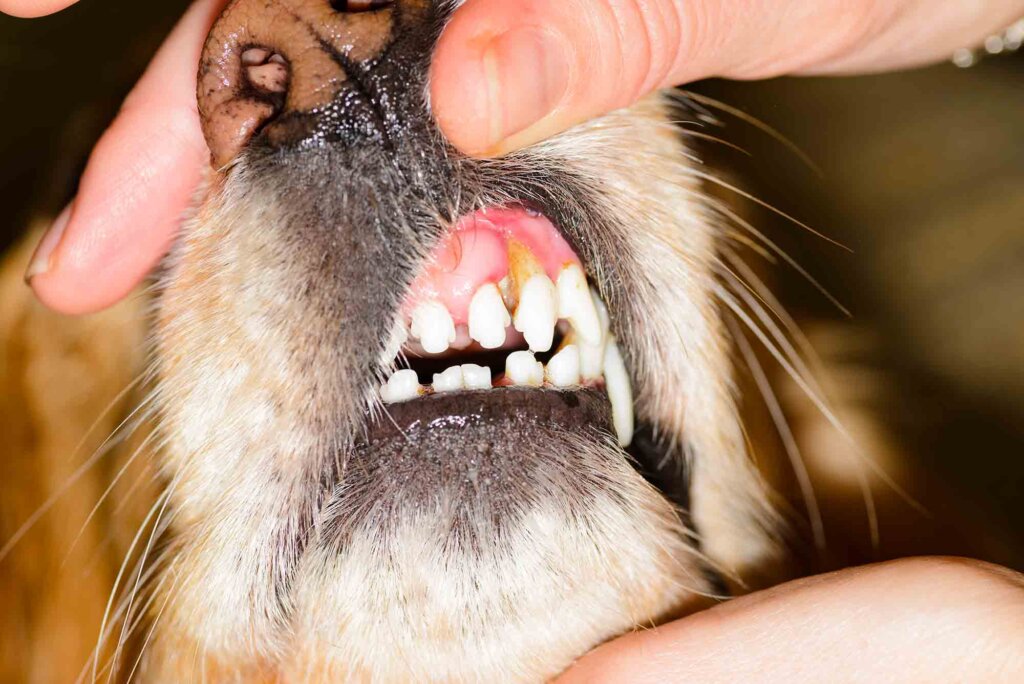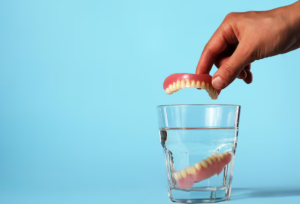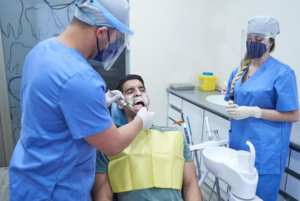
Periodontal gum disease is a common condition in dogs that affects the gums and other structures that support the teeth. Bacteria accumulating on the teeth and gums forming plaque and tartar cause it.
As the disease progresses, it can damage the tissues that support the teeth, leading to tooth loss and other complications. In dogs, periodontal disease can lead to inflammation and infection of the gums, which can cause pain, bleeding, and bad breath. In addition, the bacteria that cause periodontal disease can enter the bloodstream and spread to other parts of the body, potentially causing infections in other organs.
Why Are Dogs Vulnerable to Periodontal Gum Disease?
Dogs are particularly susceptible to periodontal disease because they often do not receive regular dental care and because their diets can be high in sugars and other substances that promote the growth of bacteria. Signs of periodontal disease in dogs can include:
- Bad breath.
- Swollen or bleeding gums.
- Loose or missing teeth.
- Difficulty eating or chewing.
If you suspect your dog may have periodontal disease, it is essential to seek veterinary care promptly to prevent further damage to their teeth and gums.
Never Leave Periodontal Disease Untreated in Your Dog
Periodontal gum disease can significantly impact your dog’s health and well-being. If justified untreated, it can cause a range of problems, including:
Pain and Discomfort:
As periodontal disease progresses, it can cause your dog’s gums to become inflamed and sore. This can make eating, drinking, or playing painful for your dog.
Tooth Loss:
Over time, periodontal disease can cause your dog’s teeth to become loose and fall out. This can make it difficult for your dog to chew their food properly, leading to nutritional deficiencies and other health problems.
Infection:
Periodontal disease can cause infections in your dog’s mouth, which can spread to other parts of the body. This can be particularly dangerous for dogs with compromised immune systems or other health issues.
Bad Breath:
Bad breath is one of the most common symptoms of periodontal disease in dogs. This can be caused by the build-up of bacteria in your dog’s mouth, leading to an unpleasant odor.
Systemic Health Problems:
Studies have shown that periodontal disease in dogs can be linked to various systemic health problems, including heart disease, diabetes, and kidney disease.
The Proper Dental Care Is Needed for Your Dog to Prevent Periodontal Disease
Prevention of periodontal gum disease is essential for your dog’s health. Taking good care of your dog’s dental health is vital to avoid these issues. This includes regular dental check-ups, daily tooth brushing, and a healthy diet that supports good oral hygiene.
Looking after your dog’s teeth and gums is essential for its overall health and well-being. Here are some tips for maintaining good dental hygiene for your furry friend:
Brush Their Teeth:
Just like humans, dogs must have their teeth brushed regularly. Use a toothbrush and toothpaste designed specifically for dogs, and start by brushing their teeth for a few seconds at a time, gradually building up to a full minute.
Provide Chew Toys:
Chewing on toys or bones can help to scrape away plaque and tartar build-up from your dog’s teeth. Choose chew toys specifically designed for dental health, and avoid giving your dog anything that could break their teeth or pose a choking hazard.
Give Them Dental Treats:
Many dog treats are designed to help clean your dog’s teeth and freshen its breath. Look for treats low in calories and sugar and made from natural ingredients.
Schedule Regular Check-Ups:
Like humans, dogs should have regular dental check-ups with their vet. Your vet can examine your dog’s teeth and gums for signs of decay, infection, or other problems and recommend any necessary treatments.
By following these tips and making dental care a regular part of your dog’s routine, you can help keep their teeth and gums healthy and prevent dental problems.
Watch Out for Chronic Bad Breath in Your Dog
Chronic bad breath in dogs can be a sign of underlying dental or health problems, and addressing the root cause is essential rather than just masking the symptoms. Here are some steps you can take to treat chronic bad breath in your dog:
Schedule A Veterinary Appointment:
A veterinarian can examine your dog’s teeth and gums and determine the cause of the bad breath. Then, they may recommend professional teeth cleaning, oral antibiotics, or other treatments depending on the cause of the bad breath.
Practice Good Dental Hygiene:
Regular brushing and cleaning your dog’s teeth can help prevent bad breath. You can use dog-specific toothpaste and a toothbrush or dental chews and toys to help clean their teeth.
Feed A High-Quality Diet:
Feeding your dog a high-quality diet can help improve their dental health and overall well-being. Avoid feeding your dog table scraps or sugary treats, as these can contribute to bad breath.
Provide Fresh Water:
Ensure your dog has access to clean, fresh water at all times. Staying hydrated can help prevent bad breath.
Consider Adding Probiotics:
Probiotics can help promote good oral health and reduce bad breath. You can add a probiotic supplement to your dog’s diet or feed them yogurt or other probiotic-rich foods.
Monitor Your Dog’s Oral Health:
Regularly check your dog’s teeth and gums for signs of dental problems, such as tartar build-up, bleeding, or swelling. Addressing these issues early can help prevent chronic bad breath and more severe health problems.
It’s important to note that chronic bad breath in dogs can indicate serious health problems, such as severe periodontal gum disease, kidney disease, diabetes, or cancer. If your dog’s bad breath persists despite your efforts to address it, or if you notice other symptoms such as vomiting, diarrhea, or loss of appetite, seek veterinary care immediately. When you feel something is wrong, visit the vet without any delay. Timely action on your part will help to improve the quality of your pet’s dental health. Don’t you agree about this with us?






